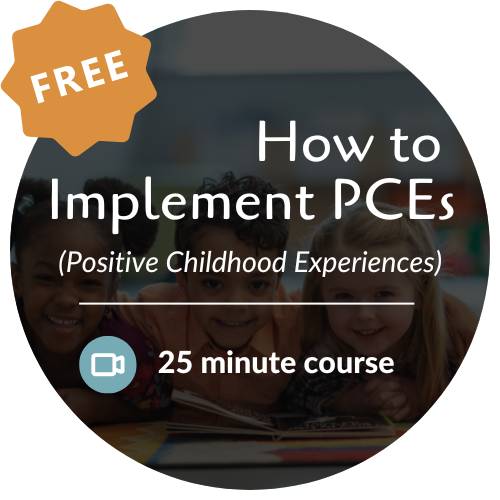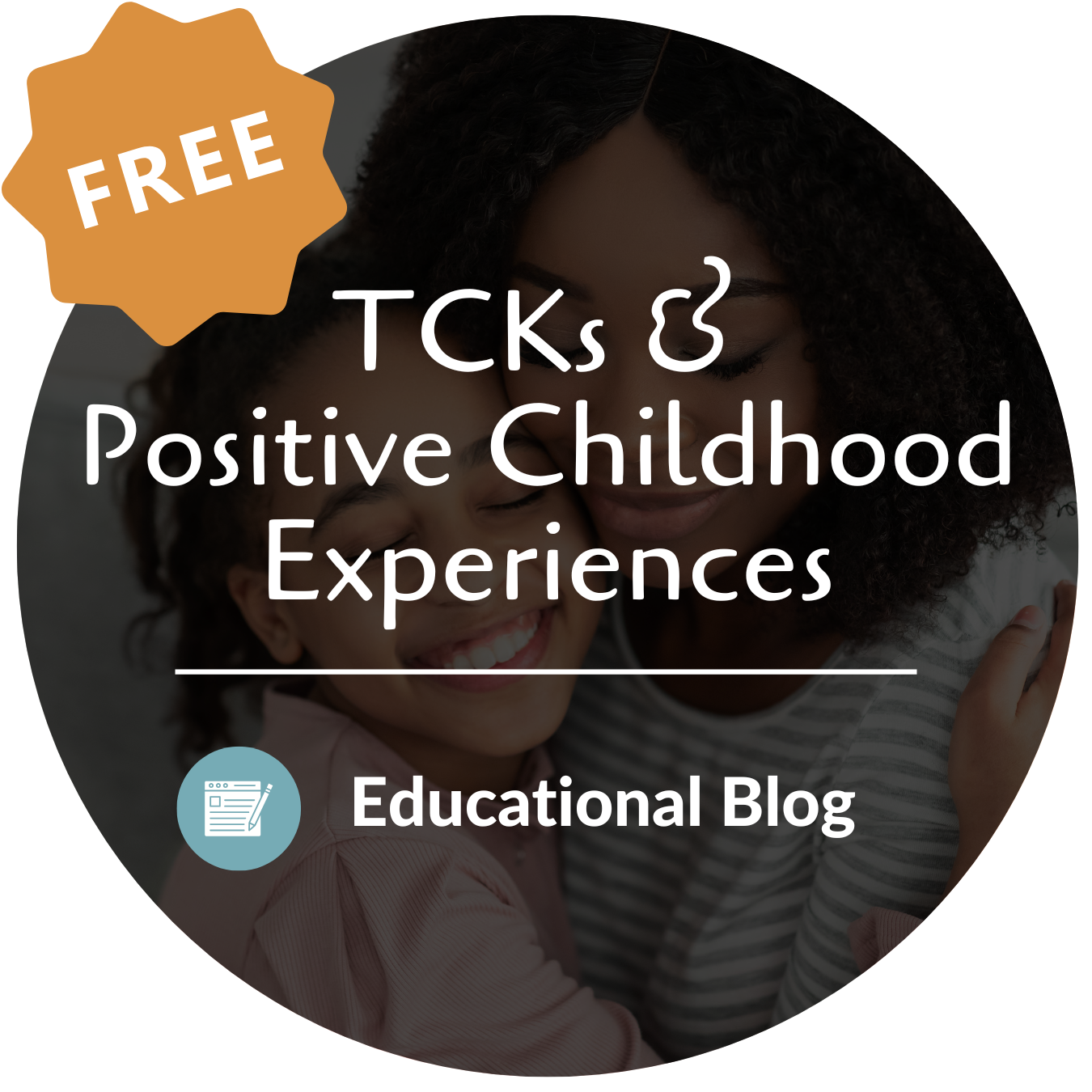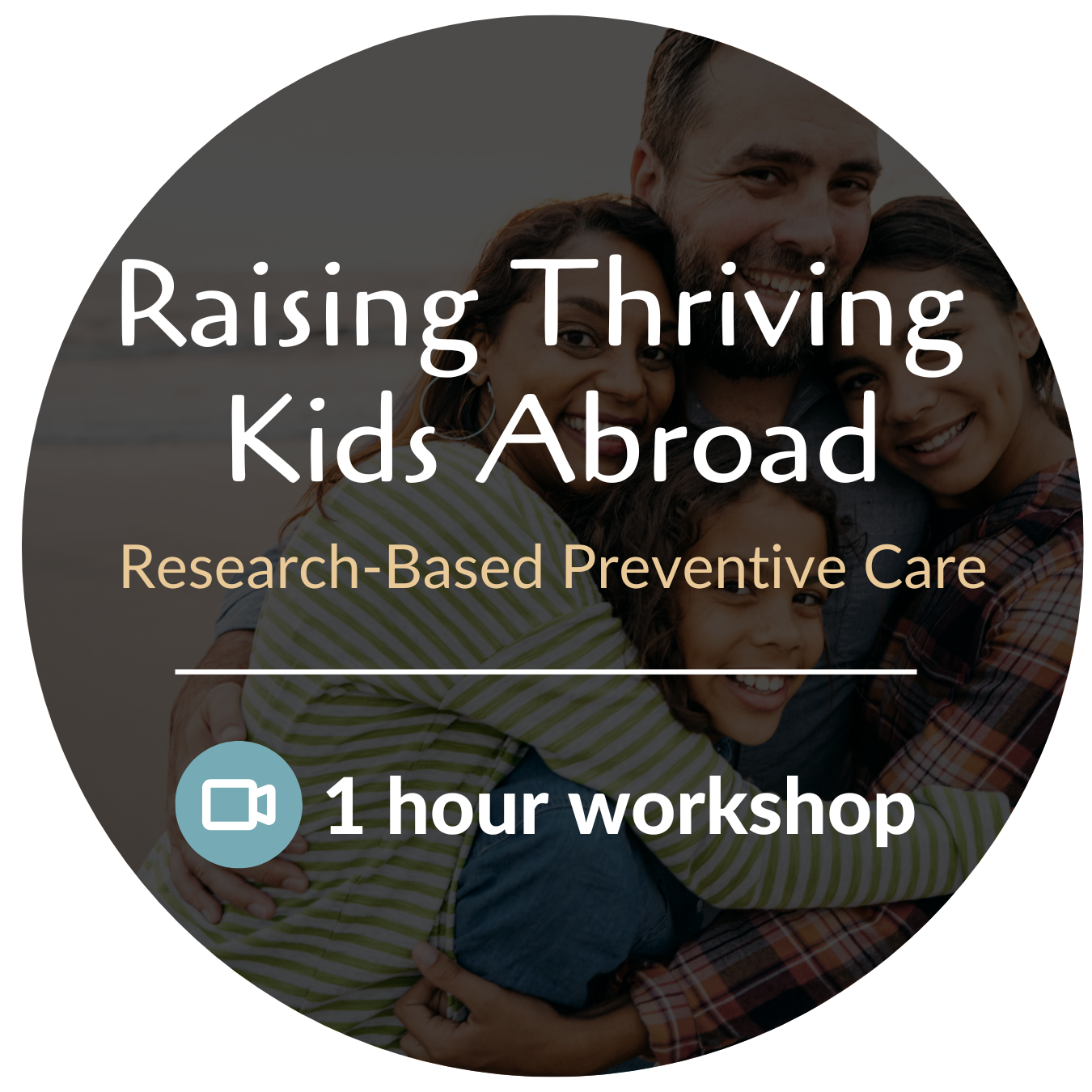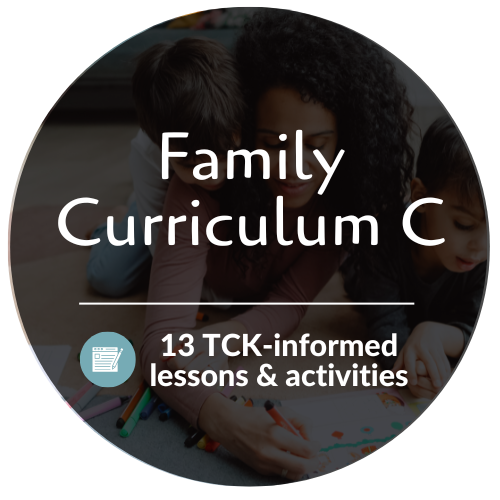What are ACEs & PCEs?
We talk about Adverse Childhood Experiences (ACEs) and Positive Childhood Experiences (PCEs) a lot here at TCK Training.
This is because we want to create evidence-based resources with tools and education you can trust and use with confidence.
ACEs and PCEs have been widely researched around the world by prevention care scientists since the 1990s that show how certain events in childhood impact a person throughout their life, both negatively and positively.
Adverse Childhood Experiences (ACEs)
ACEs are specific set of well-researched traumatic experiences that occur childhood, like abuse or household dysfunction, which can detrimentally affect health across the lifespan.
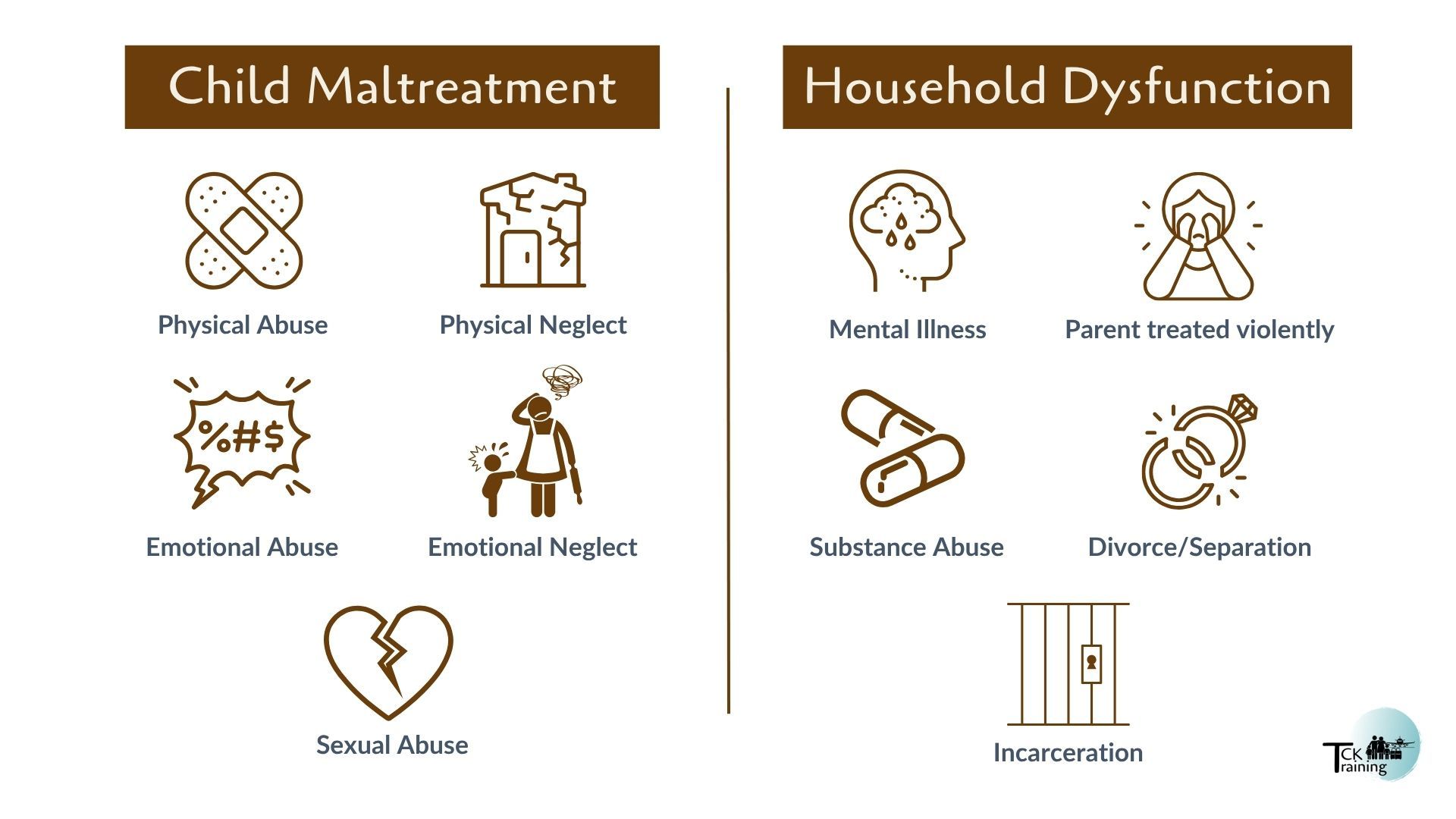
Outside Research on ACEs
Adverse Childhood Experiences (ACEs) are potentially traumatic events occurring before age 18. The 10 ACE factors are divided into two categories: child maltreatment and household dysfunction.
Child maltreatment includes direct action against a child (abuse and neglect). Household dysfunction consists of factors in the child's living environment which contribute longterm risk (such as household adults experiencing mental illness, drug abuse, or incarceration).
An individual's ACE score is determined through a simple survey which measures how many types of ACEs they experienced up to age 18. This gives a score between 0 and 10.
Research indicates that higher ACE scores correlate with increased risks of cancer, cardiovascular disease, mental illnesses like depression, and lower perceived quality of life (Felitti et al., 1998; Kerker et al., 2015, as cited in Rariden et al., 2021). An ACE score of four or more is considered high risk, with a score six or more potentially leading to premature death within twenty years without intervention (Brown et al., 2009).
Positive Childhood Experiences (PCEs)
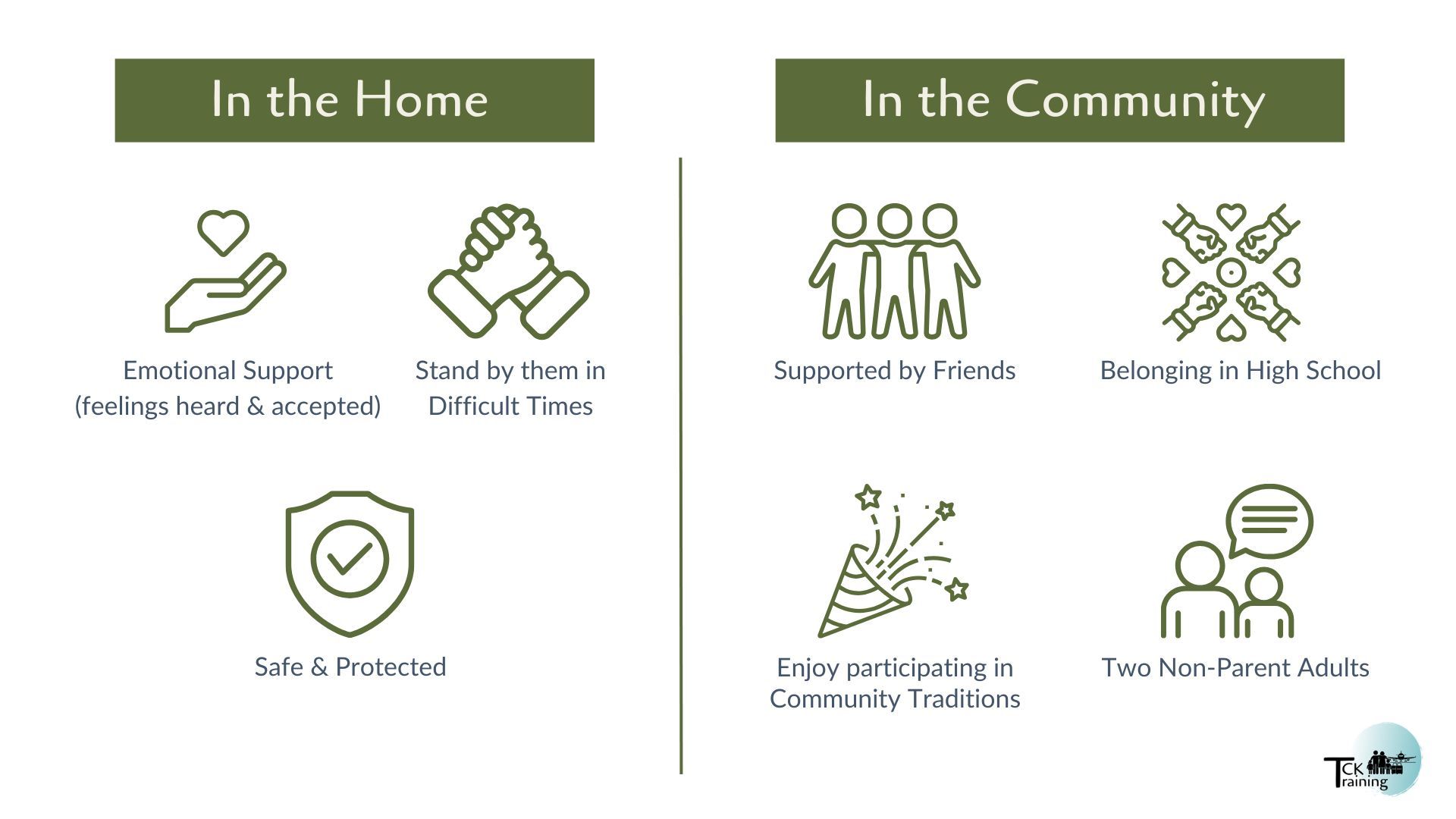
PCEs, or Positive Childhood Experiences, are resilience building factors that research has found counteract the impact of ACEs when they occur in childhood.
Outside Research on PCEs
Positive Childhood Experiences (PCEs) serve as protective factors against the negative impact on adult wellness associated with a high ACE Score.
At TCK Training, we regularly share how these Positive Childhood Experiences can be implemented to protect Third Culture Kids to improve long-term thriving and buffer against the long-term effect of ACEs.
PCEs are measured similarly to ACEs on a yes-or-no scale from zero to seven (or more, depending on the scale). There are various studies into preventive care factors, with some differences in the factors they present. Most of TCK Training's work follows Bethell et al's work and their seven PCEs.
Research by Dr. Bethell and her team focused on individuals who, despite ACE scores of four or higher, thrived in adulthood. They looked for the protective factors that helped them do well, and found the seven/eight PCEs. Their 2019 research shows that the presence of six/seven PCEs leads to a 72% decrease in adulthood mental illness among this high risk population (Bethell et al 2019).
PCEs promote healthy development and resilience in children. These experiences nurture physical, cognitive, social, and emotional competencies through stable relationships, secure environments, social engagement, and opportunities to develop positive skills.
At TCK Training, we regularly share how these Positive Childhood Experiences can be implemented to protect Third Culture Kids to improve long-term thriving and buffer against the long-term effect of ACEs.
PCEs are measured similarly to ACEs on a yes-or-no scale from zero to seven (or more, depending on the scale). There are various studies into preventive care factors, with some differences in the factors they present. Most of TCK Training's work follows Bethell et al's work and their seven PCEs.
Research by Dr. Bethell and her team focused on individuals who, despite ACE scores of four or higher, thrived in adulthood. They looked for the protective factors that helped them do well, and found the seven/eight PCEs. Their 2019 research shows that the presence of six/seven PCEs leads to a 72% decrease in adulthood mental illness among this high risk population (Bethell et al 2019).
Resources for Implementing PCEs
Family Curriculum C, (which includes the PCEs Inventory), is specifically designed to help your TCKs feel more seen and understood, become more self-aware, and learn how to communicate more effectively.

